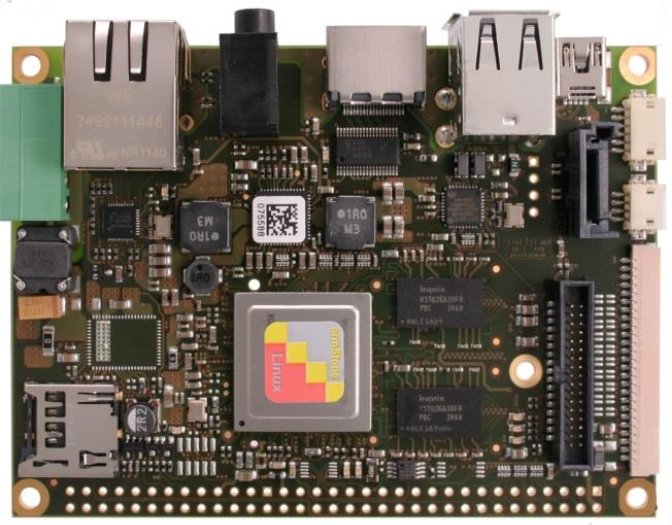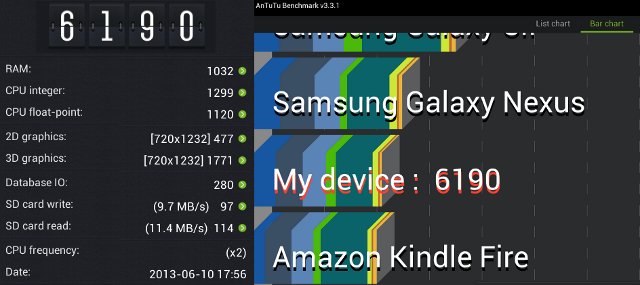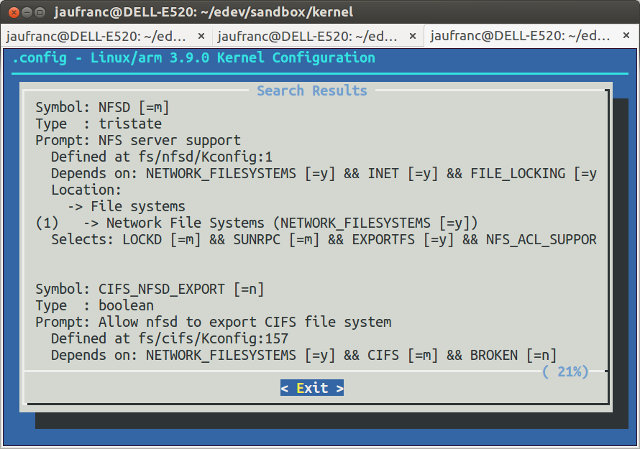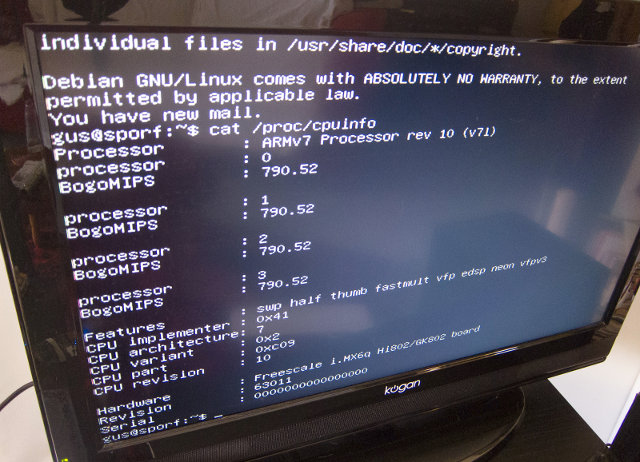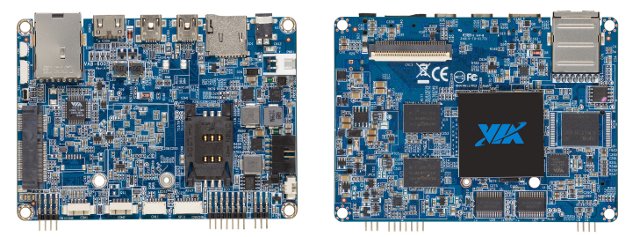I’ve just received an email from the Linux Foundation saying the schedule for LinuxCon and CloudOpen Europe 2013 had been made available. The conference will take place for 3 days (October 21-23, 2013) in the Edinburgh International Conference Center, Edinburgh, United Kingdom. There will be over 100 conference sessions, and several co-located events including: Automotive Linux Summit, the Embedded Linux Conference, Gluster Workshop, KVM Forum, Tizen Summit, Xen Project Developer Summit. As I’ve recently done with LinuxCon North America 2013 and ARM TechCon 2013, I’ll make a virtual schedule with selected developer sessions using the event’s schedule builder. You may find out several sessions will also be given in LinuxCon North America. Monday – 21st of October 11:00 – 11:50 – Bluetooth Smart Devices and Low Energy Support on Linux by João Paulo Rechi Vita, INdT This presentation will cover a brief introduction on how the Bluetooth Low Energy technology […]
Linaro 13.07 Release With Linux Kernel 3.10.1 and Android 4.2.2
Linaro 13.07 has been released with Linux Kernel 3.10.1 (both baseline and stable versions), and Android 4.2.2. It’s summer time, so activity seems to have slowdown a bit, yet improvements have done to LAVA with the first LAVA Multi-purpose Prove (LMP) setup, and Linaro has released build with Linux 3.10.1, Ubuntu Raring, OpenEmbedded (ARMv8), and Android. For the very first time, there’s even an Android 4.2.2 community build for HiSilicon K3V2 hardware (HiSilicon Hi4511 development platform). Here are the highlights of this release: LAVA LAVA Core VExpress A9 test images no longer use the master image’s boot loader Support added for interactive bootloader commands. Support for OpenID / Crowd added for LAVA. LAVA Master images updated on images.validation.linaro.org LAVA Multi-node – Multi-Node support has an initial implementation which can support communication between nodes under test via the use of a GroupDispatcher. LAVA Lab Capabilities – LMP (LAVA Multi-purpose Probe) prototypes […]
Linux Kernel 3.10 Released
Linus Torvalds has announced the release of Linux Kernel 3.10: So I delayed this by a day, considering whether to do another -rc, but decided that there wasn’t enough upside. Sure, it hasn’t been as quiet as I’d like, and we had this long discussion about an inode list locking scalability issue over the last week or two, but in the end that issue turned out to not be new, and while we may end up back-porting the eventual resolution to 3.10, it wasn’t a reason to delay the release. Similarly, while I might wish for fewer pull requests during the late rc’s (and particularly the ones that came in Friday evening -inconvenient for a weekend release), at some point delaying things doesn’t really help things, and just makes the pent up demand for the next merge window worse. In other words, I could really have gone either way, but […]
F&S armStoneA9 is a Pico-ITX Board Powered by Freescale i.MX 6 with up to 4GB RAM
F&S Elektronik Systeme GmbH has announced the armstoneA9, a pico-ITX board featuring Freescale i.MX 6 Solo/Dual or Quad Cortex A9 processor with up to 4GB DDR3 SDRAM, and 128 MB flash (1GB+ flash optional) that available in both commercial and industrial temperature range. Here are the specifications of the board: SoC – Freescale i.MX 6 Cortex-A9 (Quad-/ Dual-/ Single-Core) @ 800 MHz to 1 GHz with Vivante GPU System Memory – 1GB (standard version) to 4 GB DDR3 SDRAM Storage – 128MB Flash (1GB+ optional), micro-SD Card Slot, and SATA interface Display: up to SVGA (800 x 600, 65536 colors) via RGB up to WUXGA (1920 x 1200, 18Bit/ 24Bit) via 2x LVDS up to FullHD (1920 x 1080, 24Bit) via HDMI Touch Panel – 4-wire, analogue resistive and PCAP-Touch Interface via I2C Interfaces: 1x 10/100/1000MBit Ethernet 3x Serial (2x RS232, 1x TTL 3.3V Level) 1x USB 2.0 Host, 1x […]
Wandboard Dual Benchmarks, Serial Console Fun, and Distributions List
Since last time I tried Android and Ubuntu on the Wandboard, a few things happened. I’m not talking about Wandboard Quad announcement, but instead I received a Class 10 SD card, which makes the system so much responsive, and a RS232 to USB adapter so that I can access the serial console. So today, I’ll publish some benchmark results on Wandboard Dual since none appear to be available, and play a little with the serial console. A few things also happened on the operating systems side with more distributions now available for the board. Prerequisites I ran benchmark in Android, so I installed the latest Android 4.1.2 image (11th of April 2012) to my new SD card (ADATA 16 GB Class 10), and contrary to my poor experience on a 4GB Class 4 micro SD, everything was very fluid. I’ve also installed Google Play in order to install the applications. […]
How to Find Configuration Options Quickly in Make Menuconfig
If you’ve ever compiled the Linux kernel, you’ll know make menuconfig is the command line used to unset/set options, disable/enable modules in order to match your hardware and requirements. I used to simply browse in the menu to find the option, and just remember the correct path. Sometimes I just looked at .config to locate the option I needed, and the possible path in make menuconfig. The first time you use a new option it can be time consuming. But I’ve just found there is a better way via Google+. “/” is actually available in make menuconfig, just like it is in vi/vim. If you want to enable NFS server in your kernel, press “/”, and search for NFSD. It will show the list of results with “NFSD” strings. NFS server support is right at the top, and the path is shown to be File Systems->Network File Systems. The neat […]
Debian 7.0 Installer for Hi802 / GK802 mini PCs
We’ve had Ubuntu support on i.MX6 HDMI dongles, specifically HiApad Hi802 and Zealz GK802, for a little while, but for those who prefer Debian distribution, a Debian installer is now available thanks to Angus Gratton. Bear in mind that 2D/3D GPU acceleration is disabled in order to save 192MB RAM, as this image is mainly destined to server and/or robotic applications. If you need a desktop experience with GPU acceleration, you’d have to use Ubuntu, or you may try enable it in Debian, and see if it works, but this has not been tested. The instructions below are to be used with the internal microSD card, but if you’re ready to hack a bit around, it might be possible to run the installer from an external microSD or USB device thanks to Jasbir’s U-boot multiboot. You’d still need to use an internal microSD, but you’d only have to open the […]
VIA Unveils VAB-600 Pico-ITX Board Powered by WM8950 Processor
VIA Technologies has recently announced the VAB-600 Pico-ITX embedded board featuring WonderMedia WM8950 ARM Cortex A9 SoC clocked at 800MHz. VIA targets in-vehicle infotainment as well as mobile and healthcare applications for the board despite an operating temperature range between 0°C and 60°C. Here are the key features of this embedded board: SoC – Wondermedia WM8950 Cortex-A9 @ 800MHz + Mali-400 GPU System Memory – 1GB DDR3 SDRAM Storage – 4GB eMMC Flash memory + 512KB SPI Flash for Boot Loader + microSD slot Video Output – Mini HDMI, on-board DVO (Digital Video Output) for TTL or LVDS display Video Codecs – MPEG2 MP@HL, MPEG4, H.264 BP/MP/[email protected], VC-1 SP/MP/AP, VP8 and JPEG/MJPEG. USB – 2x mini USB 2.0 host ports Connectivity – 10/100M Ethernet (VT6113), 3G (SIM card slot) and optional WiFi support (VIA VNT9271B6050 WiFi module shared with one USB port) On-board Connectors: 2x COM connectors 1x RTC battery […]




